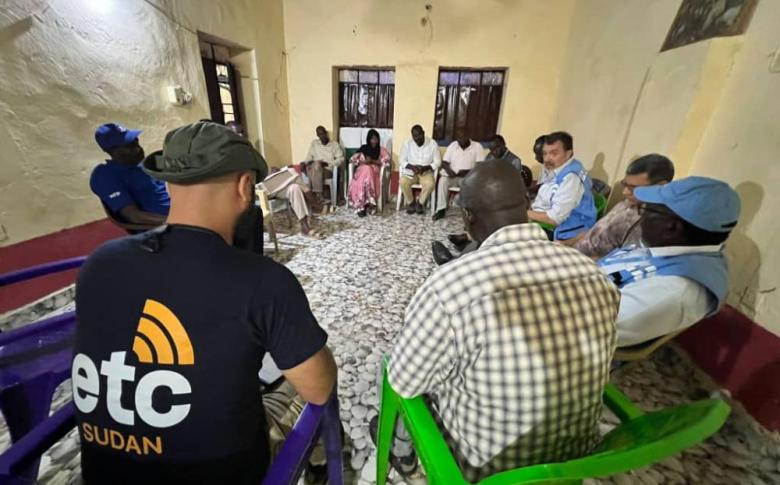Urgent appeal: ETC Sudan funding crisis

Urgent appeal: ETC funding crisis threatens critical humanitarian connectivity in Sudan
The Emergency Telecommunications Cluster (ETC) in Sudan is facing a severe funding shortfall that threatens to disrupt life-saving connectivity services at a time when humanitarian needs are deepening across the country. Immediate donor support is urgently required to sustain and expand ETC operations in the months ahead.
Immediate risk of service disruption
The ETC currently only has sufficient funding to maintain operations until September 2025. Without urgent additional support, the ETC will be forced to scale down services precisely when humanitarian demand is increasing. At minimum, the ETC needs USD $2.9 million to continue providing essential services through the end of the year, and approximately USD $13.9 million to fully meet the growing operational needs across Sudan.
Port Sudan: A critical hub under threat
Escalating drone attacks and insecurity in Port Sudan are putting immense strain on existing telecommunications infrastructure. Humanitarian actors depend on ETC networks as a lifeline and network of last resort. The ETC is currently supporting 42 partner organizations with no-cost, reliable connectivity services and has seen a surge in new service requests from humanitarian agencies operating in the region. Sustaining and expanding ETC operations here is critical to safeguarding humanitarian response capabilities.
Demand for ETC expansion is surging
Humanitarian organizations are preparing to expand operations into conflict-affected areas such as Khartoum, Wad Medani, and Wadi Halfa. They have requested ETC support to activate connectivity services in these newly accessible locations. Meeting this demand will require procurement of additional equipment, upgrades in connectivity capacity, and increased staffing. However, this crucial expansion will not be possible without immediate and increased donor funding.
Connectivity for communities is at risk
Severe shortages of fuel and power in Port Sudan are further compounding challenges for affected populations, limiting their access to communications, safety information, digital cash, and family networks. The ETC is prepared to deploy solar-powered community connectivity hubs, but this effort is currently on hold due to the funding crisis. Without support, vulnerable communities will remain cut off and uninformed in a rapidly deteriorating environment.
Rising costs and operational pressures
The ETC operates with a monthly expenditure of approximately USD $400,000, primarily covering equipment, bandwidth, and staffing. Despite soaring demand, ETC is limiting bandwidth to reduce costs, prioritizing shared-service hubs to maximize efficiency. If the 1Gbps undersea humanitarian fibre connection is disrupted due to attacks, the ETC will face significant additional costs to procure high-bandwidth satellite backup services to avoid service blackouts. Plans to expand solar-powered connectivity to communities will also require additional procurement and logistical investment.
Conclusion: The cost of inaction is too high
Connectivity is not a luxury—it is a lifeline in humanitarian response. The ETC stands ready to continue serving the humanitarian community and affected populations across Sudan, but without immediate donor support, critical services will be scaled back or lost altogether.
We urge donors to act now and provide the financial support necessary to keep Sudan connected during this time of urgent need.
Get in touch with Global.ETC@wfp.org